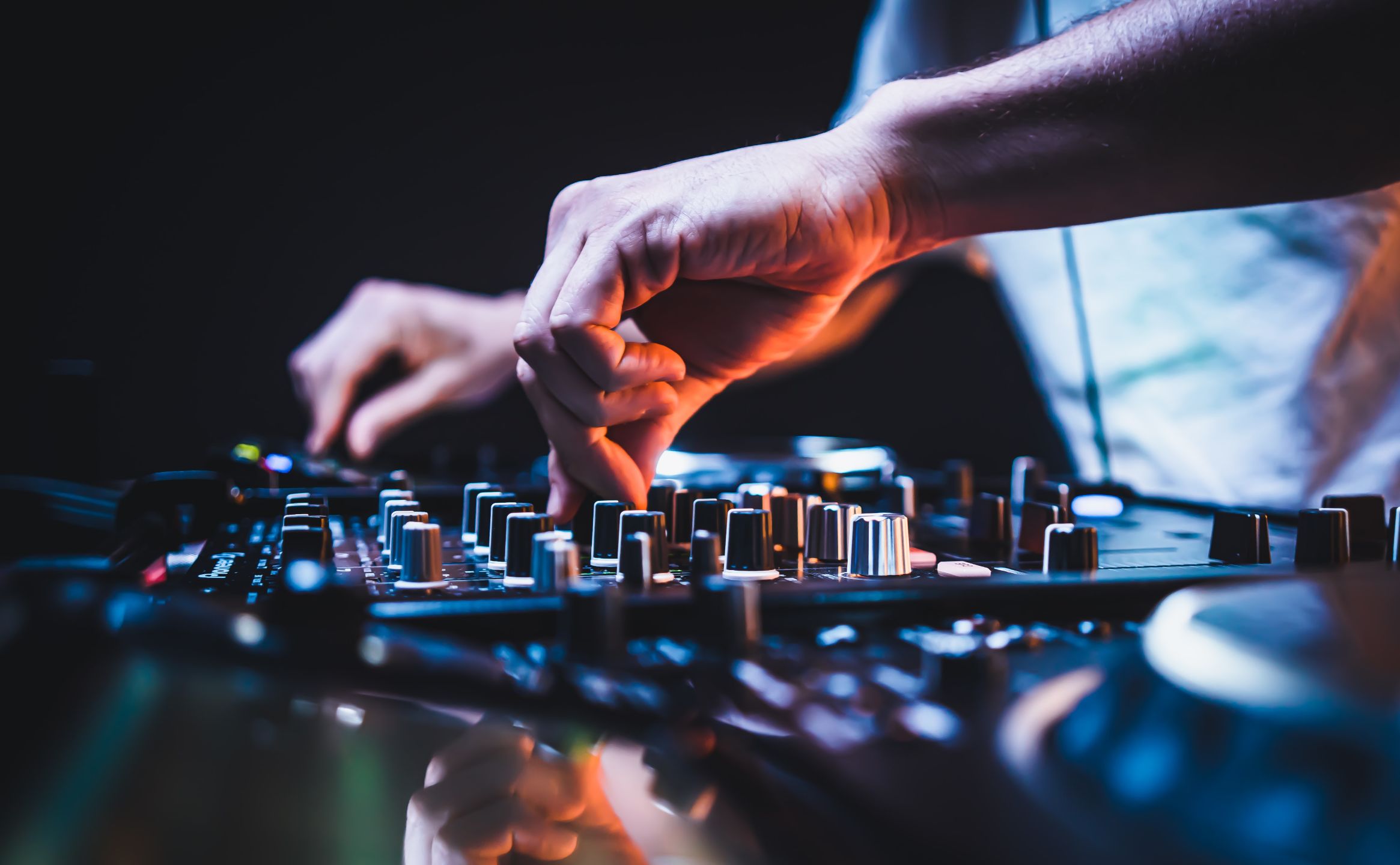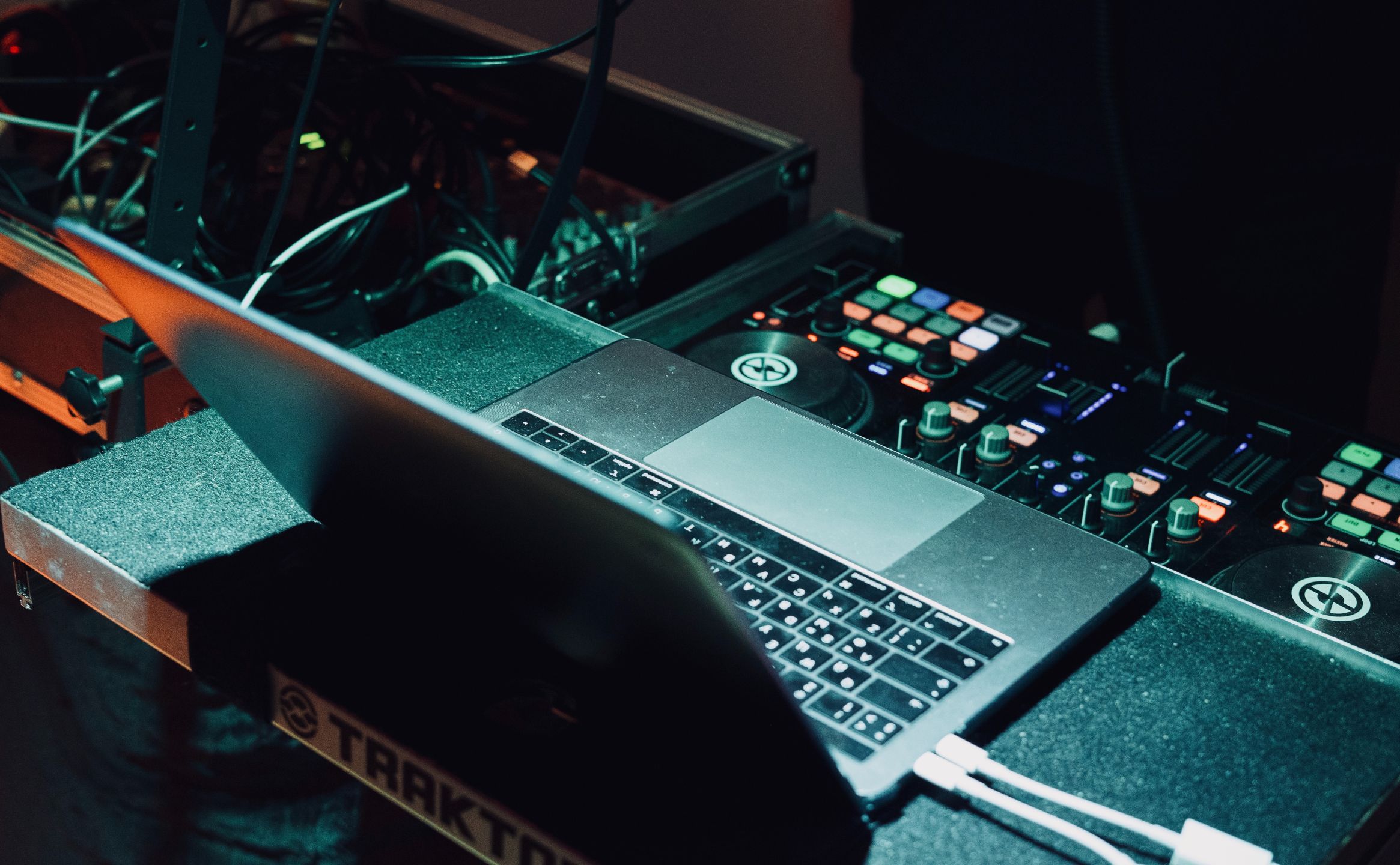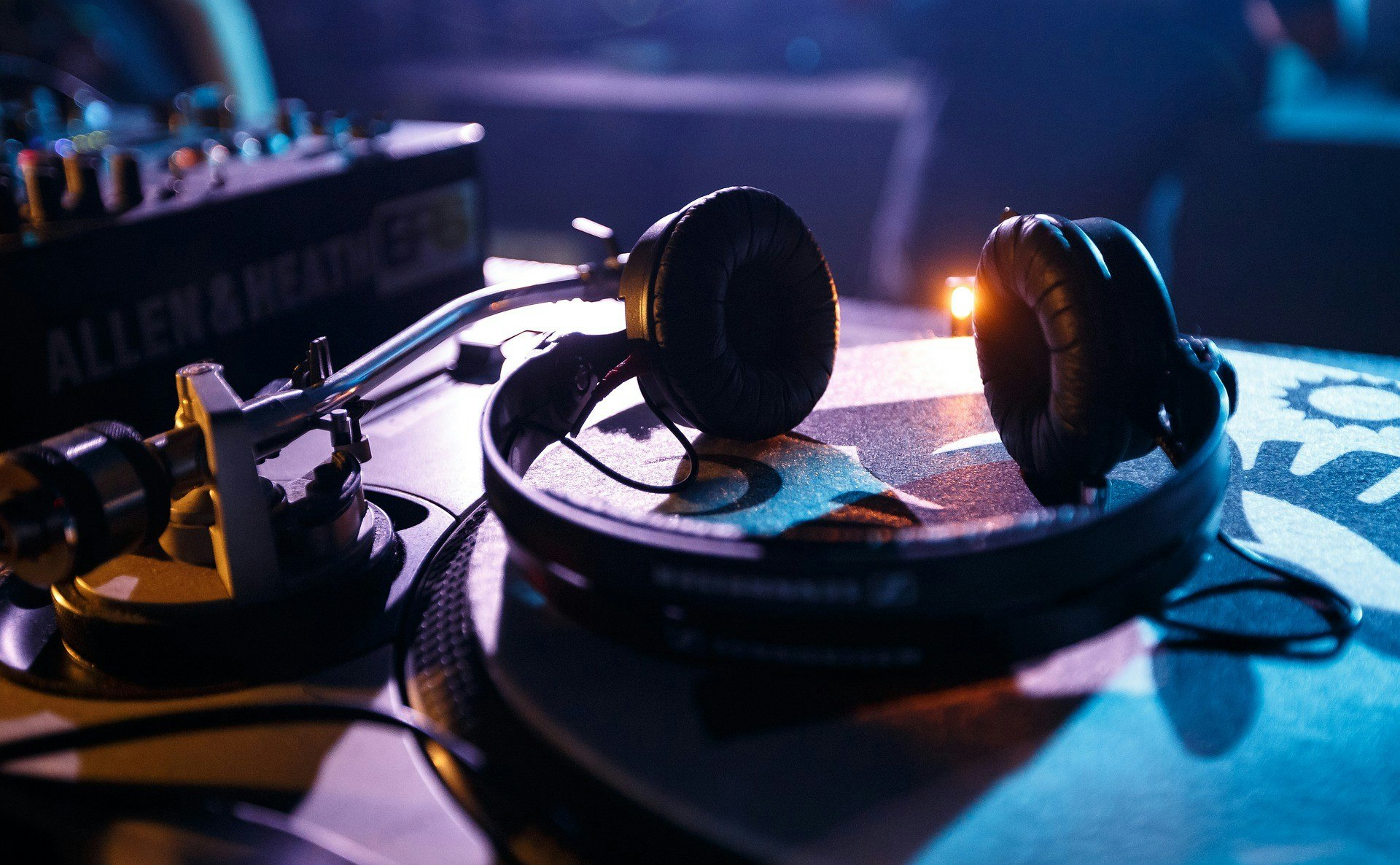
■ Features
If you’re new to DJing, you could be forgiven for not knowing the ins and outs of a DJ’s job description. This is why we've put together a list of the most popular questions and answers about DJing.
Defining DJing isn't actually particularly easy. There's of course, the technical skills required to perform at a party. On top of that, DJs have to do a lot more than just play music - they have to build up a following and hustle for gigs, sometimes acting as promoters or label managers at the same time.
For aspiring DJs, this guide will help you work out if DJing is the career that you really want to pursue.

DJ stands for 'disc jockey'. However, hearing the full term used within the industry is extremely rare.
Originally, the 'disc' in 'disc jockey' referred to shellac and later vinyl records, but nowadays ‘DJ’ is used as an all-encompassing term to describe someone who mixes recorded music from any source, including cassettes, CDs or digital audio files on a CDJ or laptop.
A DJ (or disk jockey) is a person who plays recorded music for an audience, often in bars, clubs or parties.
DJs use a controller, turntables or CDJs to cue up, combine and play songs from vinyl records, CDs or digital audio files on a computer. They use headphones to monitor the music so they know how it will sound to their audience.
There's almost no upper limit on what you can get paid as a DJ. For example, someone like Calvin Harris is thought to take home around $400,000 per show.
If you're just starting out, you might expect to get a fee of around $100 by comparison, but it really depends on the size of the show and the size of your following.
The bad news is, it's very likely that you'll have to play some unpaid gigs at the start of your career. It's difficult to get booked until you have experience so if you're offered an unpaid opening slot at a show, it's probably wise to take it.
Another thing you can do to increase your chances of getting a DJ gig is record mixes - upload these to Soundcloud and start compiling examples of your work and building up an online following. Online followers are a good indication of how many people might follow you to a gig in real life.
Most DJs nowadays will play on CDJs, turntables or a combination of the two. However, this gear can get pretty pricey. If you're just starting out and you're not ready to invest in your own kit, it's worth checking out your local DJ studios by Pirate.
Pirate's studios give DJs at all stages of their careers access to industry-standard mixing equipment at an affordable price.
DJs also use DJ software which allows them to organise their DJ sets ahead of time, and most are compatible with DJing on a laptop, DJ controller or CDJs.
To find out more about what music programs DJs use, and find the right on for you, you can try checking out Pirate's guide to DJing with Ableton or their Virtual DJ tutorial.
‘DJ set’ simply refers to the slot of time for which a DJ is performing.
At an event, there might be four DJs performing, one after the other. Each of these DJs will play a set. However, not all sets are created equal. Less established DJs will generally get the earliest set time, with bigger DJs playing peak time, and mid-level DJs closing the show.
DJs aren't creating music when they're performing. Rather, they're playing pre-recorded music saved on their USB or vinyl records or CDs and manipulating these songs to do things like change a song's beats per minute (BPM), pitch, rhythm and more.
DJs are often playing more than one song at the time which is why some of the music you hear in a set might be unlike anything you've ever heard before - because rather than making music, the DJ is manipulating and blending songs that already exist - sometimes beyond recognition!
DJs play music, but that doesn't mean they are just good at playing music. There are dozens of skills that every successful DJ must master and combine to create the perfect mix.
To nail your performance, you must have a good understanding of how a track is composed as well as an encyclopaedic knowledge of your track library and a strong sense of which tracks go well together. These are intuitive skills which you'll build up over time.
The 3 main technical skills you need to learn to become a DJ are:
When playing on stage or at an event, the DJ must read the vibe of the party and match it to the music that they're playing.
On top of that, the DJ must employ a range of skills including beat matching, controlling volume levels and mixing using EQ.
It's also worth remembering that the crowd will be watching as well as listening while you’re DJing, so if you don't look like you're having a good time, they won't either.
There are many different types of DJs and the type of DJ you are will affect the type of gig you play. Maybe you’re really into happy up-beat music, making you a great wedding DJ. In that case, you’re probably not very well equipped to play at nightclubs until 6AM.
However, the goal wherever you're DJing is basically the same - you need to understand what the crowd wants and you need to have the music library to give it to them. If you can do that, your crowd will have a great time and so will you.

The only way to fully understand what a DJ does behind the decks is to give it a go. Pirate's DJ studios can be found across the UK, Germany and US - bookable by the hour, 24/7.
